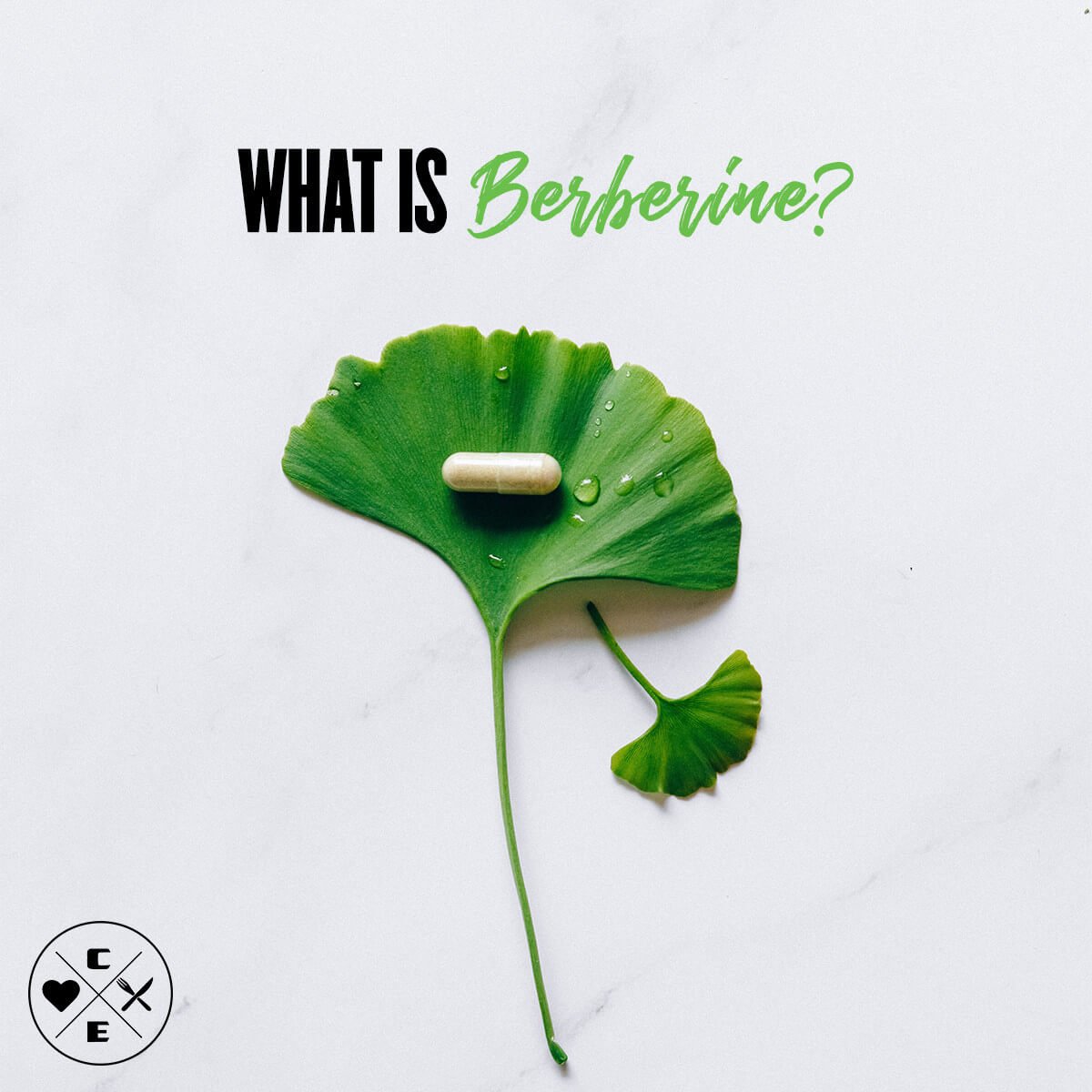
What Is Berberine and Its Remarkable Health Benefits
Jason Nista
Nutrition
|
Weight Loss
8 minute read
Introducing berberine, a lesser-known natural supplement with a rich history in traditional Chinese and Indian medicine. So, what is berberine? It's a compound found in plants like goldenseal, Oregon grape, and barberry, and it possesses remarkable health benefits. Berberine is known for its potential to aid in weight loss, blood sugar control, lower cholesterol, and even enhance brain function. But there's another intriguing dietary approach you might be curious about: the DASH diet. If you're wondering, "What is the DASH diet?" – it's a well-established eating plan renowned for its ability to lower blood pressure and improve overall health.
Let's explore both berberine and the DASH diet to discover how they can support your well-being.
What Is Berberine and Where Does It Come From?
So what is berberine? Berberine is a natural compound found in several plants, including European barberry, goldenseal, Oregon grape, and turmeric. It’s been used for centuries in traditional Chinese and Ayurvedic medicine to treat various ailments. In recent years, berberine has gained popularity as an herbal supplement due to its potential health benefits.
Berberine works as an antimicrobial, anti-inflammatory, and antioxidant. Some of the possible benefits of berberine include:
Lowering high blood sugar and cholesterol. Berberine may help improve insulin sensitivity and reduce blood sugar levels, especially in people with type 2 diabetes or metabolic syndrome. It can also help lower high cholesterol and triglyceride levels.
Promoting heart health. By reducing blood sugar, cholesterol, and blood pressure, berberine may lower the risk of heart disease. It may also help prevent arrhythmias and improve heart failure symptoms.
Aiding weight loss and gut health. Berberine, when coupled with an effective workout routine, could enhance fat burning, reduce fat storage, and improve gut microbiome. This may lead to modest weight loss over time. It may also help reduce inflammation in the gut and improve symptoms like bloating or constipation.
Slowing cell aging and fighting free radicals. Berberine has antioxidant effects that help prevent cell damage from free radicals. This could potentially slow the aging process and reduce the risk of age-related health issues like Alzheimer's or Parkinson's disease.
The typical dosage of berberine supplements is around 900 to 1500 mg, divided into 3 doses per day. Berberine may cause some mild side effects like stomach upset, nausea, or diarrhea in high doses. But for most adults, short-term use of berberine supplements under medical guidance is considered safe. Always check with your doctor first before taking any herbal supplements.
The Many Health Benefits of Berberine
Berberine has been used for centuries in traditional Chinese and Ayurvedic medicine to treat various ailments. As it turns out, berberine has some seriously impressive health benefits backed by modern science.
For starters, berberine can help lower blood sugar and fight insulin resistance. Several studies show it’s as effective as some diabetes medications at reducing blood glucose levels and A1C. It works by decreasing insulin resistance and making cells more responsive to insulin. If you have prediabetes or type 2 diabetes, berberine could be a helpful supplement to ask your doctor about.
Berberine also has major heart health benefits. It helps lower high blood pressure, high cholesterol, and triglycerides—all of which are risk factors for heart disease. Berberine prevents LDL or “bad” cholesterol from oxidizing and may reduce arterial plaque. Some research shows it can lower the risk of heart attack by about 50%!
-
This powerful compound is also good for your gut. It can combat inflammation in the GI tract, eliminate harmful bacteria while promoting good bacteria growth, and even improve symptoms of leaky gut syndrome like bloating and cramps.
-
Additional potential benefits of berberine include weight loss, depression relief, cancer prevention, and longevity. This is one supplement that impacts health on many levels.
The best part about berberine, often touted as a superfood supplement, is that it produces few side effects and is considered very safe for short-term use. However, as with any supplement, you'll want to talk to your doctor before taking it to determine the proper dosage and make sure there are no interactions with any medications you're on. Berberine, this remarkable superfoods supplement, may just be the most powerful natural remedy you've never heard of!
How Berberine Works in the Body
What is berberine, and what is berberine used for? Berberine is a naturally occurring compound found in certain plants, including goldenseal, Oregon grape, and barberry. Understanding how berberine functions in the body sheds light on its numerous health benefits. This natural supplement has gained attention for its ability to regulate blood sugar, lower cholesterol levels, aid in weight loss, and even potentially improve cognitive function. Berberine works by activating an enzyme called AMP-activated protein kinase (AMPK), which plays a crucial role in regulating cellular energy and metabolism. By stimulating AMPK, berberine can enhance insulin sensitivity, which is essential for blood sugar control. It also influences the expression of genes involved in lipid metabolism, contributing to its cholesterol-lowering effects. Berberine's multifaceted actions make it a valuable asset for those seeking natural ways to support their health and well-being.
It Acts as an Antioxidant
Berberine helps fight free radicals, which are harmful compounds that can damage cells. As an antioxidant, berberine helps neutralize free radicals and may help prevent some of the damage they cause.
It Reduces Inflammation
Berberine has anti-inflammatory effects and can help reduce inflammation in the body. Chronic inflammation is linked to health issues like heart disease, cancer, and Alzheimer's disease. By reducing inflammation, berberine could help lower the risk of these diseases and may improve symptoms.
It Improves Heart Health
Berberine can help lower high blood pressure, high cholesterol levels, and high triglycerides. By improving these heart disease risk factors, berberine leads to a healthier cardiovascular system and a lower risk of heart attack or stroke.
It Helps Control Blood Sugar Levels
Berberine works in a similar way as some diabetic medications by activating an enzyme called AMPK that helps cells take up sugar from the blood. This action leads to improved insulin sensitivity and lower blood sugar levels. Berberine may even be as effective as some oral diabetes drugs in controlling blood glucose.
It Promotes Gut Health and Digestion
Berberine has antimicrobial properties and can help balance the good bacteria in the gut microbiome. It may help reduce inflammation in the gut, improve digestion, and relieve diarrhea or constipation. Berberine could even help with more serious GI issues like small intestine bacterial overgrowth (SIBO) or non-alcoholic fatty liver disease (NAFLD).
By impacting the body in these multiple ways, berberine provides significant benefits for overall health and wellness. Adding this natural supplement to your daily routine could help prevent disease, relieve symptoms, and optimize how your body functions. However, you should always talk to your doctor before starting any new supplement to make sure it does not negatively interact with any medications you're taking.
So there you have it, the lowdown on Berberine. This little compound found in several plants has some seriously impressive health benefits. From helping regulate blood sugar and cholesterol to providing antioxidant and anti-inflammatory effects, berberine packs a punch. The best part is that it's a natural supplement, so you can reap the benefits without the nasty side effects that often come with prescription drugs.
If you're considering berberine for weight loss, it's essential to understand that there are alternative, more natural approaches to shedding those extra pounds. "What is the best weight loss program?" is a common question many people ask. While berberine can be a useful addition, it's not a magic solution. In addition to exploring berberine, you may want to consider incorporating a balanced weight-loss meal plan, such as the one offered by Clean Eatz Kitchen. Combining berberine with a healthy diet and exercise regimen can enhance your weight loss journey and contribute to more effective and sustainable results.
Final Thoughts
Berberine is a natural compound extracted from plants that is commonly used in medicines. Berberine can aid in lowering blood sugar and cholesterol, promote heart health, enhance weight loss, and slow cell aging. Berberine produces very few side effects and therefore, is considered safe for short-term use. It acts as an antioxidant, reduces inflammation, and reduces the risk of chronic disease.
FAQ
Are there any potential side effects associated with berberine?
While berberine is generally safe, some individuals may experience side effects such as digestive issues or headaches. It's vital to start with a lower dosage and monitor how your body responds.
How long should I take berberine for noticeable results?
The time it takes to see noticeable results with berberine can vary from person to person. Some individuals may experience benefits within a few weeks, while others may take longer. Consistency with usage and a healthy lifestyle can influence the speed of results.
Can pregnant or breastfeeding individuals use berberine?
It is not recommended for pregnant or breastfeeding individuals to use berberine without consulting their healthcare provider, as the safety of berberine in these situations is not well-established.
Is berberine available over the counter or through prescription only?
Berberine is available over the counter as a dietary supplement and does not typically require a prescription for purchase. However, it's important to choose high-quality products and consult with a healthcare professional before starting any new supplement regimen.



